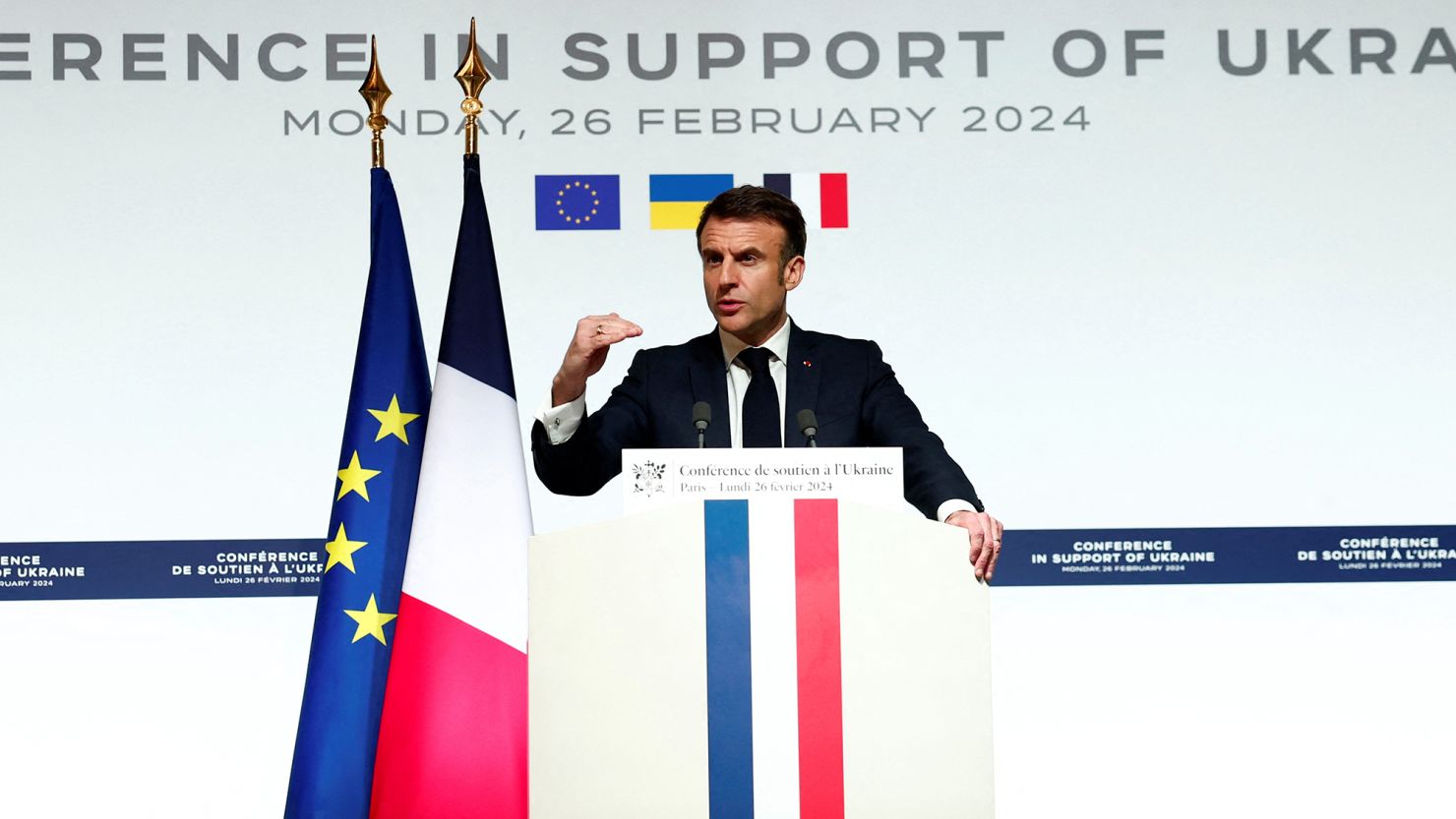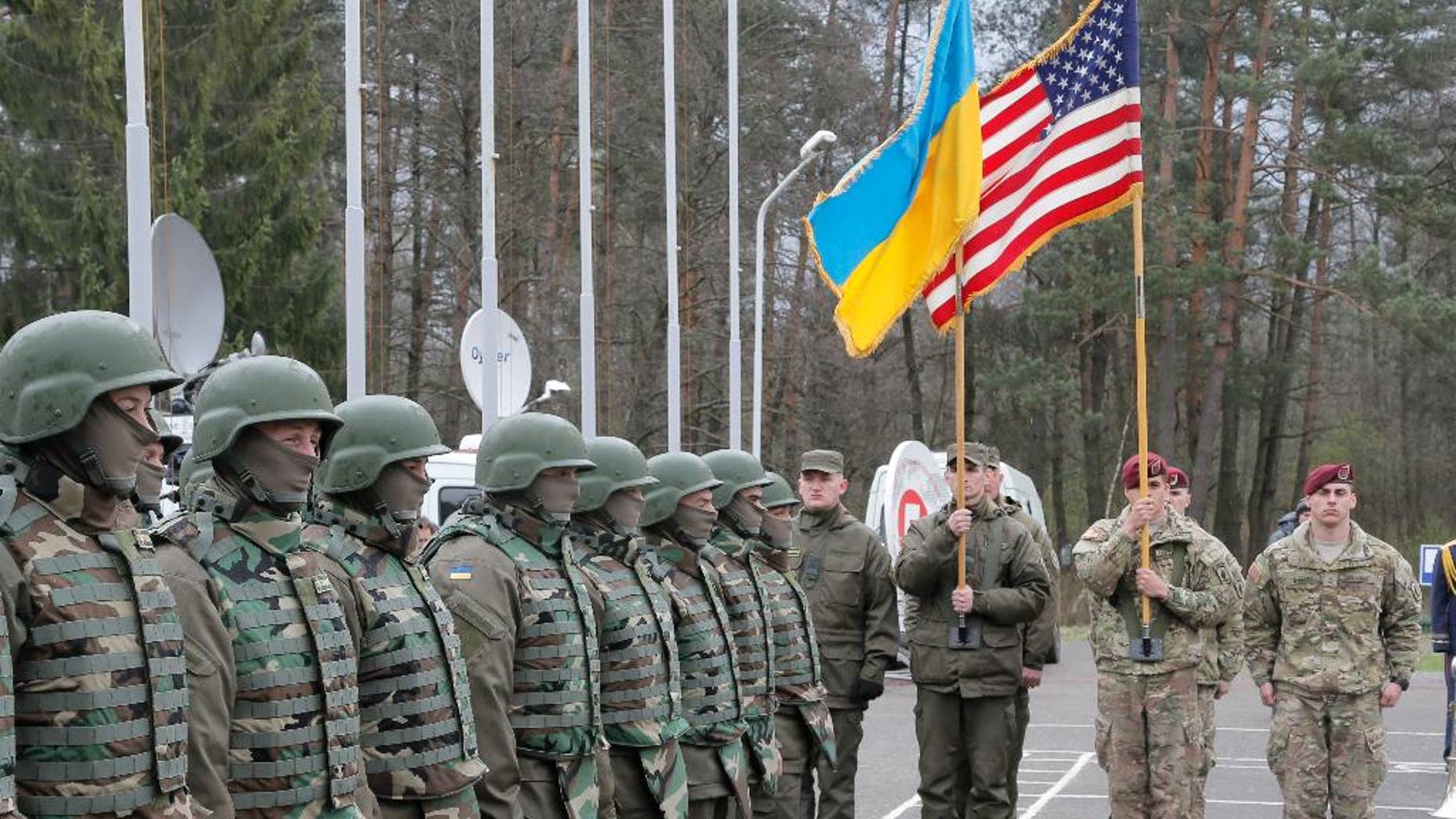
French leadeer says “Nothing is ruled out!”
Could Europe Send Troops to Ukraine?
Colin Freeman / The Spectator
(April 23, 2024) — It is 2026, and in a downbeat speech at the Kremlin, Vladimir Putin finally announces a withdrawal from Ukraine. Russian troops have done their best – or worst – but a fresh influx of well-trained Ukrainians have finally prevailed. The Donbas is now in Kyiv’s grip, Crimea’s fall only days away.
What has turned the tide, though, is not just the long-awaited F16s, or Washington switching the funding back on. Instead, it is the presence of thousands of European troops across Ukraine’s western half, protecting cities, ports and borders, making Ukraine feel reassured and Russia unnerved. As Kyiv celebrates, Europe quietly pats itself on the back too: after 80 years clutching America’s coat-tails, it finally stepped up to win a war in its own backyard.
As future war-gaming strategies go, this one may not be uppermost in Rishi Sunak’s mind when he flies to Poland today to discuss Ukraine with Donald Tusk. For a start, it rather downplays the small issue that putting western troops east of Poland’s border might spark world war three. Yet should Mr Sunak happen to browse the policy journal Foreign Affairs while on the plane to Warsaw, he would learn that in the world of thinktanks, at least, the unthinkable is finally being thought.
In an article published in the journal yesterday, ‘Europe – but Not NATO – Should Send Troops to Ukraine’, three influential military academics argue that there is now ‘a growing bloc of countries open to direct
European intervention in the war’. The nations in question have not exactly put it like that so far. France’s President Macron, who first broached the question of intervention back in February, has merely said it can’t be ‘ruled out’, while Poland’s foreign minister, Radek Sikorski, believes it is ‘not unthinkable’.
Intervention, the authors insist, is not as apocalyptic as it sounds. For a start, Article 5 wouldn’t be triggered because the countries would be acting in Europe’s name, not Nato’s. And rather than heading straight to Bakhmut to scrap full-on with the Russians, the Euro-force would stay hundreds of miles back – most likely west of the River Dnipro, the waterway that that divides Ukraine in two.
By doing so, they’d signal that they had no intention of starting a fight – only to defend cities like Kyiv should Russia try capturing them again. Their presence would, though, free up large numbers of Ukrainian troops to join the fray further east. Meanwhile, the Euro-force would massively boost rear-echelon support, be it training Ukrainian troops, repairing broken armour, or manning air-defence batteries against incoming Russian missiles.

Ukraine and US participate in joint miitary exercise in 2014.
So what could possibly go wrong? Not much, according to the authors, who say ‘the risk that deploying European soldiers will escalate the conflict is overblown’. Indeed, their proposal gets enthusiastic backing from Glen Grant, a former UK defence attaché to the Baltics, and one-time adviser to Ukraine’s defence ministry.
‘It’s a very good idea, and the western nations would learn valuable lessons from it too, even it was just helping with logistics and maintenance,’ he told me. ‘If Ukraine starts to lose the war, we’re going to have to do this anyway, so we’re only bringing it forward.’
It is not, however, quite as straightforward as it seems. Simon Woodiwiss, a former British Army infantry officer who fought with Ukraine’s International Legion and who now runs ObjectiveUkraine, a Kyiv-based security consultancy, is also broadly supportive. But he’s not so sure that European boots in western Ukraine would free up vast numbers of young, fit Ukrainians to fight further east. ‘The average of the guys at the front is 43 already, and they’re the ones who want to fight – those currently further back are more likely to be the less enthusiastic ones,’ he points out.
Other questions include whether NATO really has much to teach Ukrainian troops, given how much drones have changed the battlefield, and how little Nato tactics seemed to help in the summer’s counteroffensive. How easily, too, could Nato take over backroom tasks like logistics and procurement? According to Woodiwiss, Ukrainian military supply systems operate to their own uniquely chaotic rhythms, which would leave the average European military quartermaster in tears.
The big question is this: what would happen when bodybags started coming home? Troops stationed in significant numbers would be an obvious target for Russian missiles, and with no Article 5 to protect them, the Kremlin would surely be tempted to attack. Mr Grant says that any contributing European government would have to accept possible loss of life. He believes, though, that the benefits outweigh the risks, and that shedding blood would show Europe’s commitment in a way that giving weapons or money never can.
Politically, blood is much more expensive than treasure. For many European nations, anything beyond a few dozen fatalities would be unchartered political territory in modern times. In the West’s Afghanistan campaign, for example, America, Britain and Canada bore the brunt of the 3,500 casualties, while most European participant nations lost 50 or less.
Were deaths in Ukraine to start mounting in the hundreds, let alone the thousands, the clamour to pull troops out Ukraine would quickly grow. All it would take would be for one nation to buckle, and Mr Putin could say – with some justification – that when the going got tough, Europe wasn’t that resolute after all.

Comment
Steven Staar
The fools in the UK and the EU are beginning to seriously discuss sending troops to fight in Ukraine — like they would have any chance of defeating a massive Russian army that is now on the verge of breaking through collapsing Ukrainian lines. Once NATO troops enter Ukraine, they will quickly be targeted and destroyed by Russia.
What happens then? If NATO sends planes into Ukraine, the Russians will hit the air bases where the planes came from. Will NATO then admit defeat, or instead choose to use “tactical” nuclear weapons?
The article copied above begins by saying it is 2 years from now and the Russians are losing. Exactly how did that come about? Russia has deployed two additional strike forces on the border of Ukraine, in addition to the two that are in action now — they have three-quarters of a million men mobilized and at least half a million ready to start large offensive operations in Ukraine.
It will be a miracle if even a part of Ukraine still exists a year from now. France has been talking about sending in 20,000 troops; I suppose they think that will scare the Russians off 😂😂😂😂
The ideas presented in the article copied below are completely detached from reality. If this is also representative of the thinking in Washington, we are in very serious trouble.
In the not-too-distant future, all these false Western narratives are going to come crashing down when Russian troops sweep across Ukraine. Then what will the crazies do then?